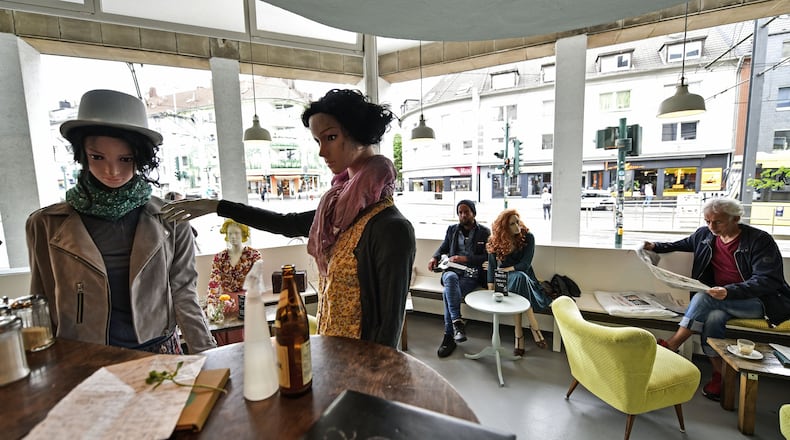The governor of Bavaria, Markus Soeder of the conservative party CSU, took drastic measures very early on in the crisis.
As in Dayton, Augsburg’s sister city since 1964, restaurants, bars and canteens in Augsburg were ordered to shut down to the public.
Borders were closed, and, as in the United States, schools and daycare centers were shut down, employees were instructed to work from home if at all possible, and access to nursing homes was forbidden to all but the staff.
The government asked people to leave their homes only to get groceries, to go to work (if working remotely was out of the question), or for medical treatment.
It was forbidden to socialize with persons other than those living in your own home. An aggressive campaign to wear masks in public and to wash and disinfect hands often was launched by the government. Local governments took every effort to trace all new infections to their source, and everyone identified as having been in contact with an infected person was ordered to home-quarantine for two weeks.
Germany thus far has about 187,000 confirmed Covid-19 cases, with 8,855 deaths connected to Covid-19 infections.
In Augsburg, 405 cases have been confirmed. About 380 of those patients have been discharged as healed. Fifteen have died. The city’s population is 300,000.
By and large, people in Germany followed these instructions closely. It is noteworthy that such far-reaching measures were enacted in a bipartisan effort, with party politics put on hold during a moment of national crisis.
The approval ratings of both Angela Merkel, the chancellor of Germany, and of the governor of Bavaria skyrocketed.
What did not skyrocket was unemployment.
Contrary to what has happened in the US, not many people lost their jobs. A government scheme called “short-term work” has been instrumental for this success.
Instead of laying off employees, corporations which prove that they have temporarily lost a considerable part of their business can reduce the working hours and the corresponding pay of their workers, even to zero.
Instead, the state steps in and sends the affected employees a check for 60 to 87 percent of the gap between what their employer still pays them and what they have previously earned.
Opinion: Dayton doctor on hearing the words ‘I Can’t Breathe’
From an employer’s point of view, this is a really good deal, as they get to retain qualified workers even in dire times and have them at their disposition immediately once business picks up again. For society at large, this scheme is advantageous, too: Instead of seeing millions of citizens on the dole, most people retain their jobs and are back on their own feet financially much quicker than if they had to look for a new job for months on end.
Little by little, Augsburg’s citizens are getting back to their normal lives now, as more restrictions are lifted every week.
Matthias Fink is a lawyer and city council member in Augsburg, Germany, Dayton’s sister city since 1964. As president of Augsburg International Association, he stays in contact with Augsburg’s seven sister cities.
About the Author

